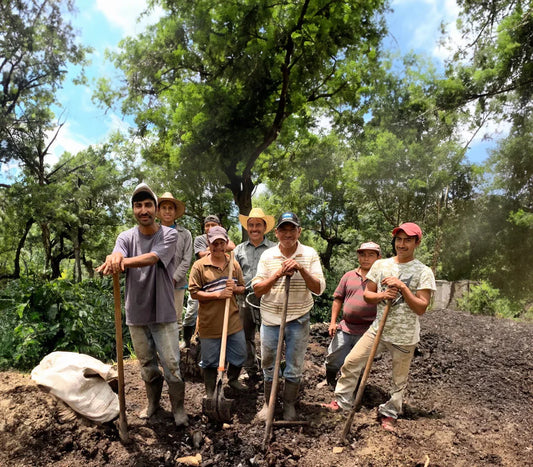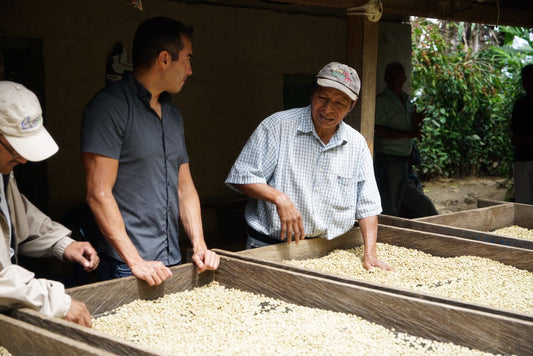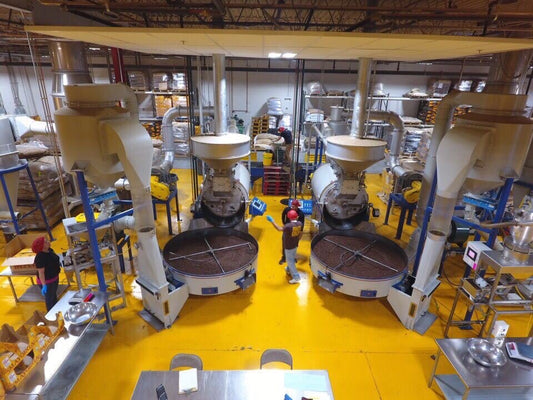
Fátima Ismael Espinoza: "The Future of Coffee is Female"
Mercedes Sempe speaks to Fátima Ismael Espinoza about why female leadership and gender equality are crucial to the future success of the coffee industry.
When asked how she started in the coffee industry, Fátima Ismael Espinoza points to literacy.
As a teenager, she got the opportunity to teach basic literacy skills to communities in rural areas and soon realized that many people in those regions needed help. So she told her parents she wanted to go to an agricultural school.
"In our class of 40 students, only two of us were women," Fátima remembers. "At first, the men in the class were resistant but, ultimately, they accepted us and learned to love us."
Since then, Fátima has made it her mission to educate and empower women at grassroots levels and the most senior levels in the coffee industry.
Today, Fátima is the general manager of The Society of Small Producers for Coffee Exports (SOPPEXCCA), a Fairtrade and organic-certified coffee cooperative in Jinotega, Nicaragua.
SOPPEXCCA's mission is to bring small producers closer to the coffee market, to ensure coffee quality, to promote equality among producers and the market, to empower women by giving them a voice in the industry to which they so richly contribute, and provide a space for younger generations to grow and dream.
Technically, she is in charge of planning, evaluating and monitoring processes, marketing and managing resources but, in practice, Fátima is involved on all fronts. She is often even seen in the field.
"We aren't regular office-bound managers," Fátima explains. "There is a lot going on and sometimes it is tough to keep up with everything but there is always a reason to carry on and continue pushing this union forward."
SOPPEXCCA was founded in 1997 after a previous organization in Jinotega left small producers in serious debt.
Fátima was there from the very beginning and admits that the initial goal of empowering producers by first relieving them of their enormous debts seemed far-fetched.
But the organization succeeded and today more than 300 producers are part of the cooperative – and thriving.

"Women are not a trend"
The union that Fátima manages was the first in the country to have a gender committee, which works towards making SOPPEXCCA and Jinotega more egalitarian. This is something she is particularly proud of.
"Our gender policies, after years of being implemented in our organization, were replicated and adapted by other cooperatives," Fátima says. "So we are helping more than just our own people; we are going beyond that, and this is what it is all about."
But it wasn't easy getting to this point. Fátima recounts that, even for her, it wasn't easy to take up a senior role in the organization as women are often seen as untrustworthy by fellow employees.
Throughout the years Fátima has worked hard to break this stigma by championing women in senior positions on various boards and committees, and creating a sense of cooperation and trust between them and male employees.
To further bolster women in the industry, Fatima and SOPPEXCCA also created Café Las Hermanas, a local coffee brand produced by women. At its inception in 2001, it was the first women’s cooperative in the country and had 87 women growers.
"The fields from which Café Las Hermanas gets their coffee are owned by women," says Fátima. "That was the decisive factor."
Fátima believes that a big part of empowering women is promoting their economic independence, so the cooperative helps create opportunities for female producers to own their land.
Many women have leadership roles in the cooperative, too. As she explains: "We don't want women in visible places as a marketing strategy. We have women in powerful positions so that they can make decisions.
"Women working at the highest levels of coffee production cannot be a trend," Fátima commented back in 2018. "It cannot be en vogue for this year or this decade, the coffee industry must be sustainable, transformative and fair."
As part of a broader education and empowerment drive, SOPPEXCCA and Café Las Hermanas also give back to the wider community. Apart from investing in farm equipment and horticultural training, they also sponsor school supplies and medical equipment for doing cervical cancer screenings, for instance.
"Many women in the community benefit from this, not just members of our cooperative," Fátima says. "Our model seeks to have an impact not only on our people but also on the community we are part of."

Nurturing young talent
Fátima believes that younger generations will play a pivotal role in the future of coffee. As such, she is keen to nurture young talent, such as by incorporating producers' children as part of the organization.
They are taught, for example, how to help with coffee tasting, the promotion of local brands and are even in charge of two coffee houses owned by the organization which seeks to promote local consumption.
But as much as this helps, Fátima says there is always more to do, which can be both daunting and motivating. "One of our current challenges is to create more windows of opportunity for the younger generations and show them that working in the fields can be rewarding."
She goes on to explain that emigration has soared under the youth as economic circumstances have made it difficult for them to find a job locally. This, she wants to change. "I’d like to see those young people have a future here," Fátima says.
While all this may seem gloomy, Fátima is confident that the future is bright and full of promise.
"In the last ten years, the coffee industry has evolved and has embraced and acknowledged the role women play," Fátima says, while she stresses that the idea of an Alianza de Mujeres en Café was born in Nicaragua.
She highlights how supportive the industry is and how different cooperatives and organizations from all over the world support each other. All this joint effort seems to be paying off.
"The biggest reward is when I see a family, a small producer, moving forward," Fátima says. "Their crops get bigger and their kids go to school and I see professionals that were born and raised in the fields. That is the dream come true."


